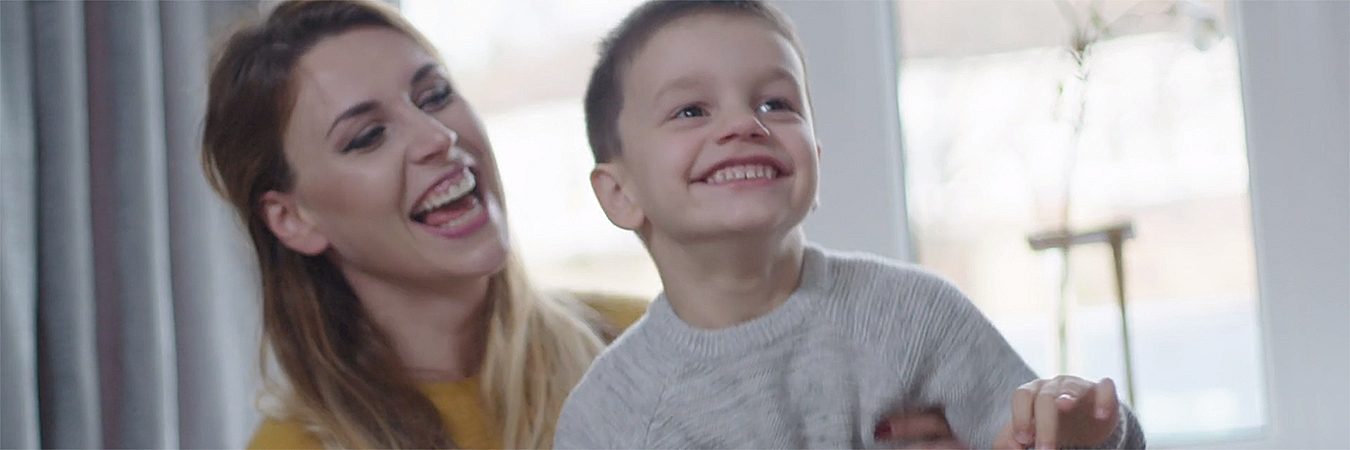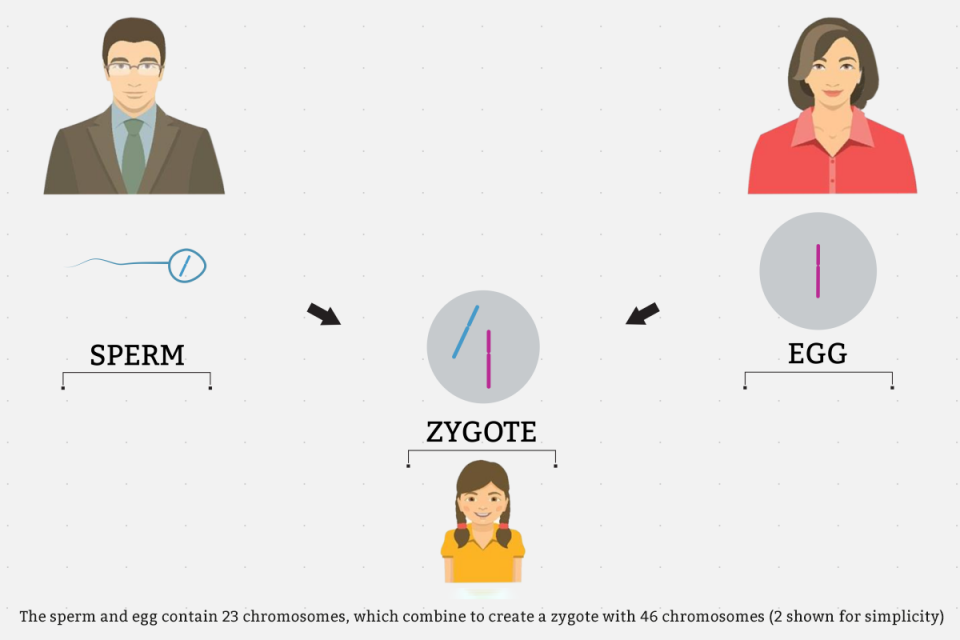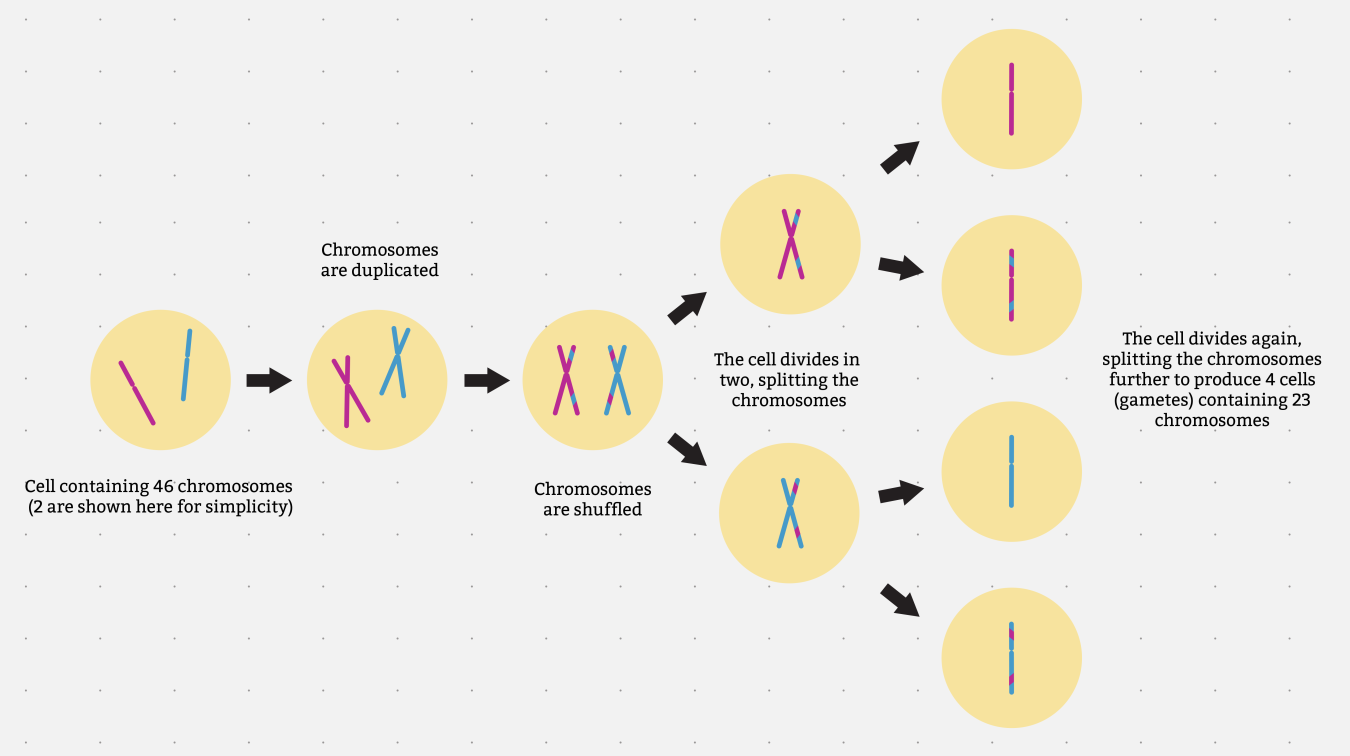Does Every Sperm Have The Same Genetic Makeup
Bitesize genomics

Where does our genome come from?
1One-half + half = yous
Your genome is unique. A copy is institute in about every jail cell in your trunk and is organised into 46 chromosomes in 23 pairs.
But where does your genome come from? To answer this, we must become back to the point of your formulation, when your male parent's sperm fused with your mother's egg.
The sperm and egg are specialised cells called gametes and are unique in comparison to almost of the other cells in the body, as they only incorporate half the usual number of chromosomes. At fecundation, half of your male parent's genome is mixed with half of your female parent's genome to form your complete genome.

2It's all in the mix
So if our genomes come from our parents, why don't all siblings look the aforementioned? This is because - unless you are an identical twin - the egg and sperm that created you independent dissimilar combinations of your parents' Dna than the egg and sperm that created your brother or sister.
The different combinations are considering of how gametes are formed, through a type of cell division called meiosis, where a cell containing 46 chromosomes divides to produce iv cells, each containing 23 chromosomes. During meiosis, the chromosomes are duplicated, shuffled and separated, which ensures that each gamete produced is unique.
Meiosis: How gametes are formed

3When sperm meets egg
At fertilisation, a prison cell is formed chosen a zygote, which then undergoes another type of cell segmentation called mitosis. This type of cell division differs from meiosis, as rather than producing four cells with half the number of chromosomes, it produces two completely identical cells.
The ii cells, known as girl cells, then divide to produce two new cells, which too carve up then on. Cells in our torso undergo mitosis not only for our growth and development, but also to repair tissue or supersede dead cells.
Spotter the animation to come across this process in action.
ivThe significance for health
As the genome is passed from both parent to offspring and from jail cell to cell in our body, any change in the Dna - known as a variant - can also be passed on.
In healthcare, this becomes pregnant if the variant is associated with a detail medical condition. For instance, if a parent knows that there is a chance their kid might inherit a condition, it could influence their reproductive choices or aid them prepare for the intendance of their child. Equally, knowing that a variant cannot be inherited tin be as important to an individual.
Scout this motion-picture show to hear Beskida Fejzullahu talk most her family's journey to discovering the genetic variant present in her son Arvin, and how they approached a subsequent pregnancy.
5Summary points
-
Your genome is inherited from your parents, half from your female parent and one-half from your father.
-
The gametes are formed during a process chosen meiosis. Like your genome, each gamete is unique, which explains why siblings from the same parents do not look the same.
-
Following fusion of the egg and sperm, another type of cell division called mitosis occurs, producing ii identical cells from one. Mitosis is essential for your body's development, growth and repair.
-
It is clinically important to understand if a genomic variant associated with a medical status tin can be passed on from parent to offspring.
6Learn more
Do you want to larn more about genetic inheritance? Try one of our courses and resources, beneath!
Source: https://www.genomicseducation.hee.nhs.uk/education/core-concepts/where-does-our-genome-come-from/
Posted by: mcgrathextured.blogspot.com

0 Response to "Does Every Sperm Have The Same Genetic Makeup"
Post a Comment